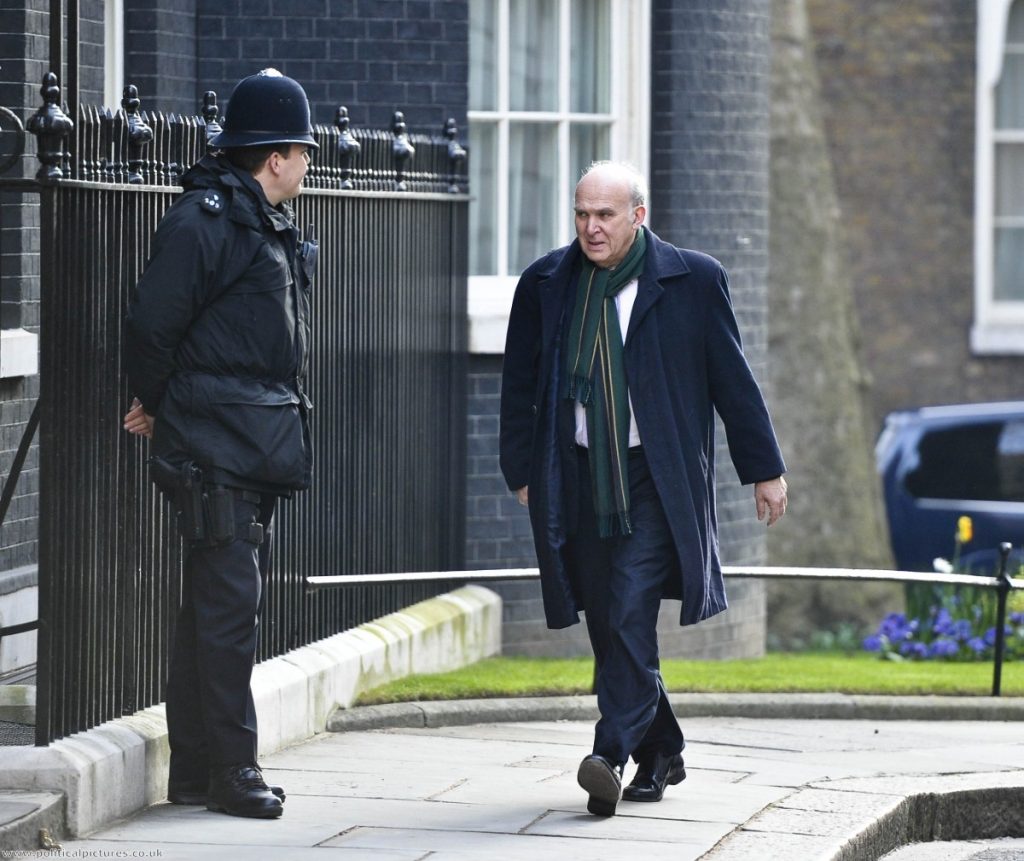Cable won’t budge over banking reforms
By Alex Stevenson Follow @alex__stevenson
Business secretary Vince Cable is standing firm in the face of extensive lobbying against banking reforms from the City.
Pro-business lobbying group the CBI and the British Bankers' Association (BBA) were among those who attacked the plans to force banks to split their retail and investment arms yesterday.
Pressure is growing on the coalition to lessen the impact of the 'ringfence', or even defer its implementation for many years, as banks struggle to provide lending for firms in Britain's ailing economy.


Mr Cable has forcefully rejected these arguments in an interview with the Times newspaper, however.
"It is disingenuous in the extreme to use the current context to argue against reform," he said.
"Banks are in a way trying to create a panic around something which they know has got to happen.
"The governor of the Bank of England and many other people have been arguing that we have to deal with the too-big-to-fail problem.
"We can't have big global banks with balance sheets bigger than British GDP underwritten by the taxpayer; this can't go on and it has got to be dealt with."
The potential reforms also include making sure that the government does not face future losses if a bank collapses, as happened during the 2008 financial crisis, and a proposal that depositors should get their money back before creditors.
Sir John Vickers, the chairman of the Independent Commission on Banking (ICB), will publish his report on September 12th.
Yesterday the CBI's director-general John Cridland told the Financial Times newspaper he thought taking action in "this moment of growth peril" was "barking mad".
Angela Knight, chief executive of the BBA, said banks should not force an extra "overlay with respect to costs, uncertainty or whether it is going to do anything beneficial anyway".
But pro-business groups face a challenge from those seeking action against the financial sector widely blamed for the recent recession.
"An out-of-control banking sector is no basis for economic recovery," said David Hillman, spokesperson for the Robin Hood Tax campaign.
"Banks should be made to pay for the damage they caused and not be allowed to repeat the mistakes of the past.
"We must not be deterred by bank lobbyists whose idea of 'economic recovery' means increasing bank profits. We can protect jobs and help those hit hardest by the financial crisis if we ensure banks pay their fair share back to society."
Reports that Conservative chancellor George Osborne and Mr Cable, a Liberal Democrat, have differing attitudes on the issue – especially over whether the reforms should be immediately implemented.
They have prompted shadow Treasury minister Chris Leslie to warn against "rows between senior Cabinet ministers" stand in the way of delivering reforms "in the national interest".
"In the short term we need the banks to support the jobs and growth that are essential to get the deficit down," he commented.
"That means tougher action to get the banks lending to small businesses and a fair tax on bank bonuses to fund 100,000 jobs for young people.
"And in the medium term we need banking reforms that pass Labour's three tests of protecting customers and taxpayers, securing international agreement to protect jobs in Britain and delivering a banking system that supports the long-term interests of the wider economy."
A Treasury statement said: "The government set up the ICB to ask the difficult questions that weren't asked before the crisis and this is exactly what the commission is doing."









